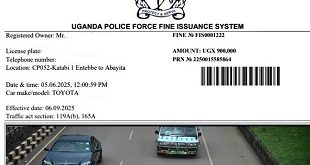
COMMENT: By Morris DC Komakech
Mwenda’s targeting Besigye ignores reality that political power aligns with economic interests and vice versa
In the last few weeks, our political space is simply polluted by a lackadaisical analysis of politics and the space causing forces that shape those spaces. Andrew Mwenda’s cruel targeting of Forum for Democratic Change (FDC) leader Kizza Besigye as the problem in our politics is disingenuous. Some FDC MPs like Nabillah Nagayi (Kampala Woman) and Abdul Katuntu (Bugweri) appear off balance and pessimistic in clamouring to “work with” NRM, or adhering to a party structures while denouncing the defiance campaign. What a contradictory retinue!
I also recently saw Hon. Paul Kasana Luttamaguzi of Nakaseke South calling for opposition leaders to set aside their egos to form a united front for them to move beyond the dead end zone.
I disagree with all these individual analyses and conceptualisation of the political space dynamics. I argue that the prevailing political impasse is as it is, by a matter of historical design, and not of individual making. Blaming KB for the mess evokes a question of moral trepidation.
It would be prudent for scholars to study the impact of the ban on political parties right from the issuance of the Legal Notice #1 in 1986 to the subsequent enactment of Articles 269 and 270 of the 1995 NRM Constitution (as amended). This study would be a worthwhile venture to illuminate the magnitude of the damage caused to opposition political parties during the ban. As you recall, political party activities were restricted to party headquarters in Kampala for about 20 years.
Another worthwhile venture is to study the impact of the forceful conscription of Ugandans into NRM and to what extent this benefitted the political fortunes of the ruling Party. No matter the amount of knowledge the Mwendas of this world have, if we continue to glaze on the surface of these important historical factors, we shall never properly understand our politics.
 The Independent Uganda: You get the Truth we Pay the Price
The Independent Uganda: You get the Truth we Pay the Price



